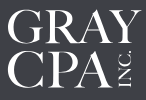Debit Card Smarts
Save money and potential headaches with these debit card tips:
- Only use in-network ATMs. All debit cards are also ATM cards and used by many to access cash. One of the most common fees appears when you use an out-of-network ATM.
What you can do: Understand the ATM fees charged by your bank. Only choose a bank that provides free ATM withdrawals for in-network locations. Look at the back of your debit card to see what ATM networks are considered in-network. Then use only those ATMs. - Fraud protection benefits are different. Most credit cards provide zero liability on any unauthorized charges. Debit cards also provide protection against fraudulent purchases, but there may be limitations depending on which financial institution issued your card. According to federal law, here is the maximum amount of fraudulent transactions you’ll be responsible for depending on when you notify your bank that your card is lost or stolen:
What you can do: Immediately notify your financial institution as soon as you realize that your debit card is lost or stolen. Frequently review transactions online to identify any unknown charges. Also check with your bank to verify the liability coverage and the timing required to report fraud on your debit card.- Immediately notify your bank before any unauthorized charges are made: Zero liability
- Within two business days: Up to $50
- After two business days but within 60 days: Up to $500
- Fail to notify within 60 days: Unlimited
- Have multiple ways to access your cash. If your debit card gets lost or stolen, have another way to pay bills until your new debit card is issued. This is especially true if you’re traveling.
What you can do: Ask your bank about its options for issuing multiple debit cards for the same checking account. If you’re opening an account other than a free checking account, ask about potential fees, service charges and balance limitations. - A debit card is not always the best payment method. Remember that a debit card provides financial access to your bank account. If it goes bad, your ability to pay other bills can be affected. For example, a stolen debit card may require you to lock your checking account. What does that mean for your other outstanding payments, like your mortgage, vehicles or utilities? Your financial life can be thrown into chaos.
What you can do: Avoid using a debit card on websites that are targets for scammers. Avoid using it for air travel given all the recently cancelled flights, as you could easily empty your checking account while trying to get refunds. Consider having a separate bank account as a backup in case the account linked to your debit card needs to be shut down.
While debit cards are quickly overtaking checks and cash as the most popular method of payment, it is important to evolve your use of them to maximize their benefit to you.
